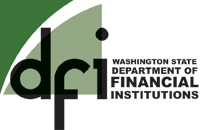From the Field - Common Exam Findings

The following are some of the common violations our exam teams in each industry found during examinations in the last quarter:
- MSB Programs
- Mortgage Originations – Mortgage Broker
- Mortgage Originations – Consumer Loan
- Mortgage Servicing
- Escrow Agent
MSB Programs
Material Changes - Licensees must provide notice to the Department specifying material changes as required by RCW 19.230.150(1). For all material changes, a licensee shall file with the director within thirty days, notification indicating any material changes in information provided in a licensee's initial application as prescribed in rule by the director. The material changes as defined by WAC 208-690-110 should be reported through an MU1 amendment in the NMLS.
Information Security Program - Licensees must develop, implement, and maintain a written information security program as required under 16 CFR 314 and WAC 208-690-250. The program must include the elements required under 16 CFR 314.4. In addition, adequate disaster recovery and business continuity plans should be developed, and tested, including documentation of those tests and remediating actions.
Permissible Investment and Transmission Liability Reporting and Coverage - Examiners cited continued failures to prepare monthly reports about permissible investments (PI). Licensees must prepare monthly reports about PI that include the calculation of average daily transmission liability (ADTL) as required under RCW 19.230.170(c) and WAC 208-690-085. Licensees must prepare and maintain monthly PI reports in order to demonstrate adequate PI as required under RCW 19.230.200 and RCW 19.230.210. The Department provides model PI and ADTL forms for licensees’ use on the agency’s website.
(Note: Washington licensees must prepare and maintain monthly PI reports in addition to quarterly PI reports required by the NMLS Money Services Business Call Reports.)
NMLS Reporting - Licensees must accurately and timely file Money Service Business Call Reports (MSBCRs) as required under RCW 19.230.152 and WAC 208-690-105. Accurate volume reporting is required, and should be reconcilable to exam documents and volumes reported in WA Annual Assessment Reports. For virtual currency licensees, virtual currency balances must be reported as outstanding transmission liability, and the value of virtual currency assets must be reported for permissible investments.
Disclosures – Disclosures required by WAC 208-690-205 must be provided as required. Fraud disclosures should be provided prior to each disclosure and include language similar to that included in WAC 208-690-205(2). Specific disclosures are required by virtual currency licensees under WAC 208-690-205(3), and must be disclosed separately from all other information required.
Mortgage Originations – Mortgage Broker
The most common violations during the third quarter remain the same as previous quarters:
- Failure to file quarterly MCRs on time
- Failure to file accurate MCRs
- Failure to develop and implement an adequate Anti-Money Laundering program
- Failure to provide updated lock agreements when a change to the lock terms occurs
- Failure to include a link to the company’s NMLS consumer access website on all internet advertisements. The requirement to include the link on all internet advertisements was new as of September 2019.
Another intermittent violation is failure to develop an adequate Disaster Recovery or Business Resumption Plan. Some brokers will say their disaster recovery plan is simple because all their data is on the cloud, and they were able to continue business without interruption during the pandemic. This approach does not consider various scenarios such as localized interruption of internet and cellular services due to, say, a large earthquake in a certain region. The data may not have been destroyed, but what secondary methods would the company use to access the cloud? A good plan should consider several scenarios and provide realistic actions a company would take. A good start on a Disaster Recovery Plan is to gather all your staff together (or friends if you don’t have employees) and brainstorm scenarios and possible solutions.
Mortgage Originations – Consumer Loans
Licensing Processing and Underwriting Supervisors - Any manager who is the day-to-day operational supervisor of loan processors or underwriters must hold a license. The license can be from any state. Examiners continue to identify day-to-day supervisors of underwriters and processors that do not hold a loan originator license.
Develop Supervisory Plans - WAC 208-620-301(6) requires that licensed managers must prepare and maintain written supervisory plans for the employees they supervise. Plans must include the number of employees supervised, their physical locations, how the supervisor will adequately supervise employees not in the same location as the supervisor, and the type and volume of work performed by the supervised employees. Examiners routinely identify plans that do not contain all required elements.
Mortgage Loan Servicing
We continue to cite inaccurate Consolidated Annual Reports for calendar year 2018. This violation usually occurs due to servicers not including loans that were paid off or transferred out during the year. The second most common violation is failing to provide an accurate escrow analysis. The causes of these violations were properties losing their senior citizen property tax reduction/exemption upon sale, with the county notifying the borrower rather than the servicer. However, closing documents show the closing agents/lenders were aware the change would happen, and calculated the initial escrow analysis at closing to cover the loss of the discount. The last common violation was failing to include all activity since the last statement on periodic account statements. Again, the errors occurred with activity that does not occur on a regular basis, such as not disclosing a property inspection fee, or a one-time property assessment/lien paid from escrow.
Escrow Agent
The most common finding on Escrow Agent examinations continues to be inaccurate names for settlement service providers on Closing Disclosures, most commonly identifying the escrow fee as being paid to a title company. Though the Closing Disclosure is the lender’s responsibility, the best practice for escrow agents is to notify the lender of any errors on their Closing Disclosures.
